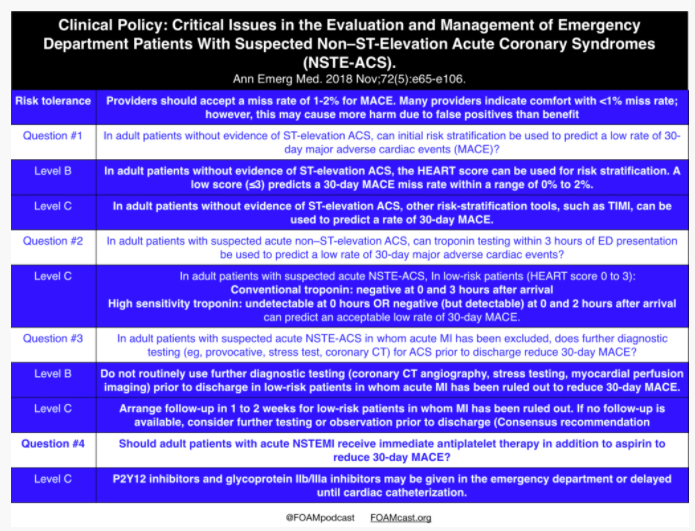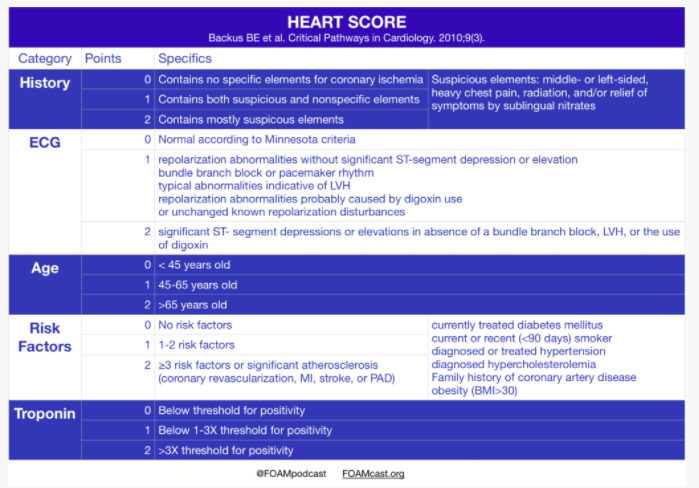In this post I link to and excerpt from the FOAMcast’s Dec 27, 2018 podcast and infographics, and show notes of ACEP Non-ST Elevation Acute Coronary Syndrome Guidelines.
Here are excerpts from the FOAMcast Post:
We cover the clinical policy from the American College of Emergency Physicians – Clinical Policy: Critical Issues in the Evaluation and Management of Emergency Department Patients With Suspected Non–ST-Elevation Acute Coronary Syndromes [PubMed Abstract] [Full Text HTML] [Full Text PDF]. Ann Emerg Med. 2018 Nov;72(5):e65-e106.
These figures below are also from FOAMcast.
HEART Pathway for Early Discharge in Acute Chest Pain from MDCalc:
Identifies emergency department patients with acute chest pain for early discharge.
Here are the complete show notes [I copy them because doing so helps me fix the concepts in my mind]:
We cover the clinical policy from the American College of Emergency Physicians – Clinical Policy: Critical Issues in the Evaluation and Management of Emergency Department Patients With Suspected Non–ST-Elevation Acute Coronary Syndromes
In adult patients without evidence of ST-elevation acute coronary syndrome, can initial risk stratification be used to predict a low rate of 30-day major adverse cardiac events?
- Use HEART score ≤3
In adult patients with suspected acute non–ST-elevation acute coronary syndromes, can troponin testing within 3 hours of emergency department presentation be used to predict a low rate of 30-day major adverse cardiac events?
- Negative conventional troponins at 0,3 hrs in low risk patients
- High sensitivity troponin: undetectable initial troponin, no need for another. Negative initial troponin, repeat at 2 hours
In adult patients with suspected acute non–ST-elevation acute coronary syndromes in whom acute myocardial infarction has been excluded, does further diagnostic testing (eg, provocative, stress test, computed tomography [CT] angiography) for acute coronary syndrome prior to discharge reduce 30-day major adverse cardiac events?
- No need to get provocative testing before discharge or within particular time frame
Should adult patients with acute non–ST-elevation myocardial infarction receive immediate antiplatelet therapy in addition to aspirin to reduce 30-day major adverse cardiac events?
- antiplatelet therapy additional to aspirin can be given or delayed
Thanks for listening!
Jeremy Faust and Lauren Westafer
Podcast: Play in new window | Download






